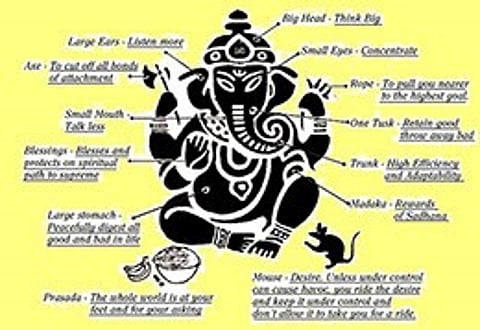
- Home
- न्यूजग्राम
- India
- World
- Politics
- Entertainment
- Culture
- Lifestyle
- Economy
- Sports
- Sp. Coverage
- Misc.
- NewsGram Exclusive
- Jobs / Internships

By - Devakinanda Pasupuleti
The word guṇam means quality, attribute, the chief one, and many other meanings in Sanskrit. Our dharma śāstras, especially the Manu Dharma śāstram describes the qualities and virtues of elders, women, and children and also how to behave according to our age. In modern times, these qualities are becoming rare to find.
In the olden days, elders used to discipline somebody who behaved badly and tried to teach them good manners. Grandparents, parents, and teachers used to teach children good qualities like speaking the truth, not stealing, addressing elders with respect, not cheating, dressing properly, keeping hair properly, bathing regularly, eating healthy, playing outside and exercising, reading regularly, and show respect to teachers, kindness toward animals, tolerance, humility, not to be jealous, and forbearance. They taught men to treat every woman with respect as his sister or mother. They also taught them to be kind, gentle, and loving toward their wives. Because children follow the footsteps of elders, rishis have prescribed honorable behavior to parents, women, and elders.
It may look like all these behavioral practices are very strict and interfere with personal freedom and freedom of speech. However, if we look at the world today, we should thank our dharmaśāstrās and our rishis for giving us these duties and codes of conduct.
The land which insists on virtues and good qualities for the welfare of society at large is our land is 'Guṇasampad Bhūmi'.
